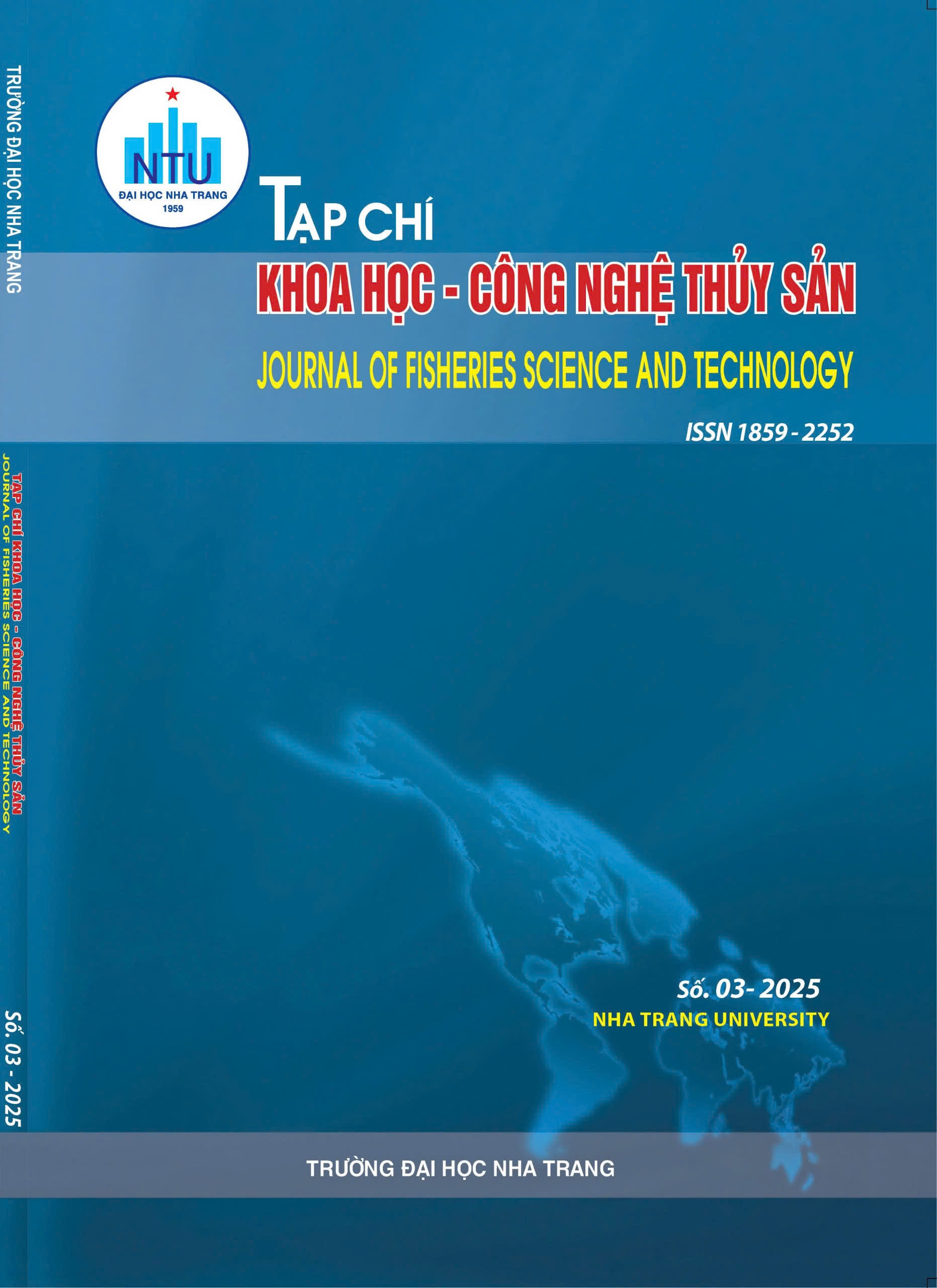##plugins.themes.huaf_theme.article.main##
Abstract
Protein hydrolysates obtained from aquatic animals generally contain high levels of small peptides, amino acids, and bioactive compounds, which have many applications in the food industry. The objective of this study was to optimise the hydrolysis conditions for alcalase (enzyme concentration, temperature, and hydrolysis time) to obtain protein hydrolysate from whiteleg shrimp heads using a Box–Behnken experimental design of response surface methodology (RSM). Two regression equations were established to evaluate the effects of alcalase concentration, temperature, and hydrolysis time on the degree of hydrolysis (DH) and soluble protein (SP) content in the protein hydrolysate. Both regression equations were found to be suitable, with a confidence level greater than 99%. An alcalase concentration of 0.77% (w/w), a temperature of 54.4 °C and a hydrolysis time of 7.1 h were found to be the optimum coditions to achieve the maximum DH of 40.98% and a SP content of 50.67 mg/mL.
Keywords: protein hydrolysates, enzyme alcalase, hydrolysis conditions, optimisation.

